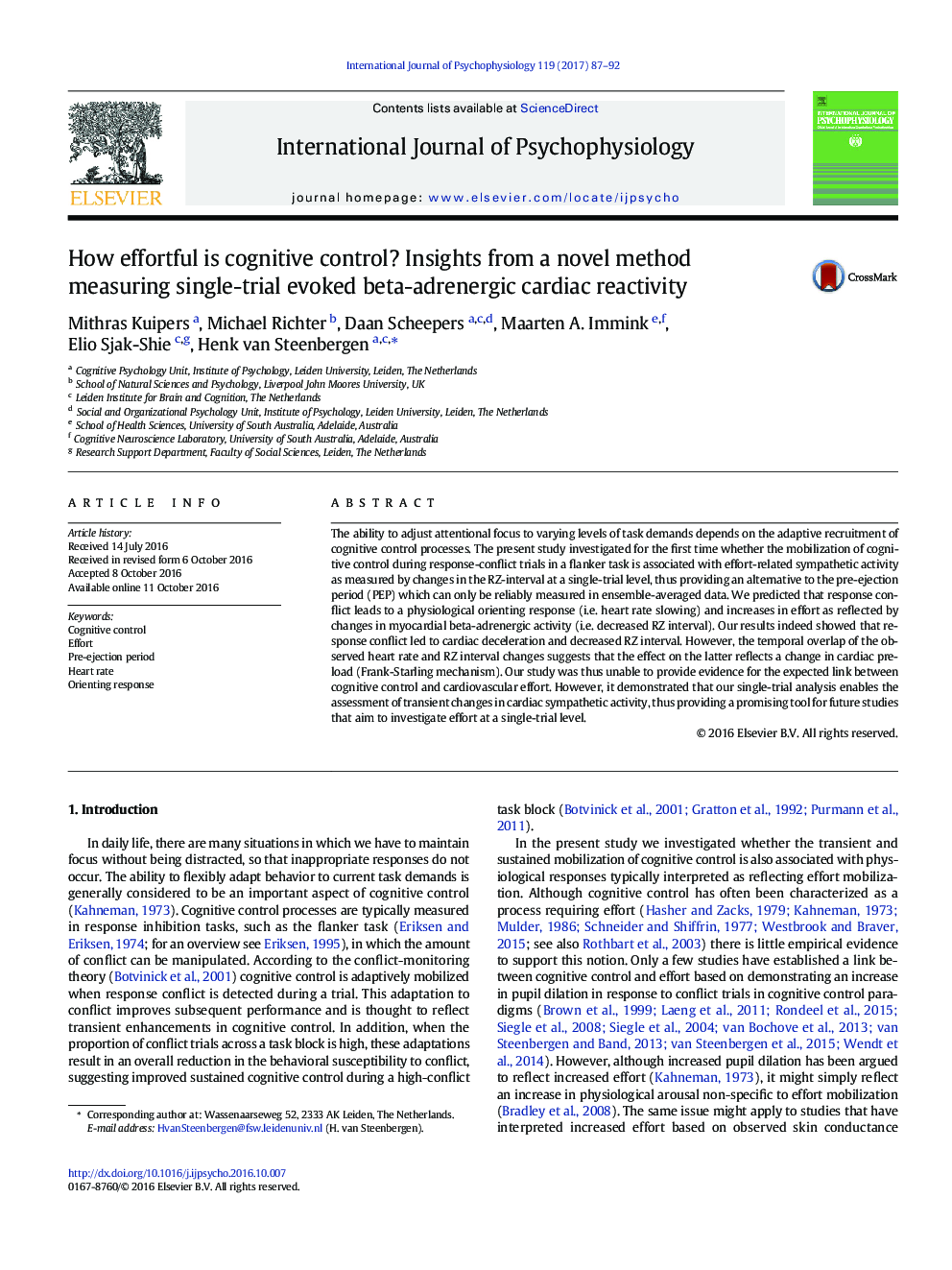| Article ID | Journal | Published Year | Pages | File Type |
|---|---|---|---|---|
| 5042279 | International Journal of Psychophysiology | 2017 | 6 Pages |
â¢Does mobilization of cognitive control lead to effort-related sympathetic activity?â¢Novel method measured RZ-interval at single trial, providing an alternative to PEP.â¢Response conflict led to heart rate slowing (orienting response) and decreased RZ interval.â¢Temporal overlap indicated that effect on RZ was due to cardiac pre-load effect.â¢Tool is promising for future studies to investigate effort at single-trial level.
The ability to adjust attentional focus to varying levels of task demands depends on the adaptive recruitment of cognitive control processes. The present study investigated for the first time whether the mobilization of cognitive control during response-conflict trials in a flanker task is associated with effort-related sympathetic activity as measured by changes in the RZ-interval at a single-trial level, thus providing an alternative to the pre-ejection period (PEP) which can only be reliably measured in ensemble-averaged data. We predicted that response conflict leads to a physiological orienting response (i.e. heart rate slowing) and increases in effort as reflected by changes in myocardial beta-adrenergic activity (i.e. decreased RZ interval). Our results indeed showed that response conflict led to cardiac deceleration and decreased RZ interval. However, the temporal overlap of the observed heart rate and RZ interval changes suggests that the effect on the latter reflects a change in cardiac pre-load (Frank-Starling mechanism). Our study was thus unable to provide evidence for the expected link between cognitive control and cardiovascular effort. However, it demonstrated that our single-trial analysis enables the assessment of transient changes in cardiac sympathetic activity, thus providing a promising tool for future studies that aim to investigate effort at a single-trial level.
